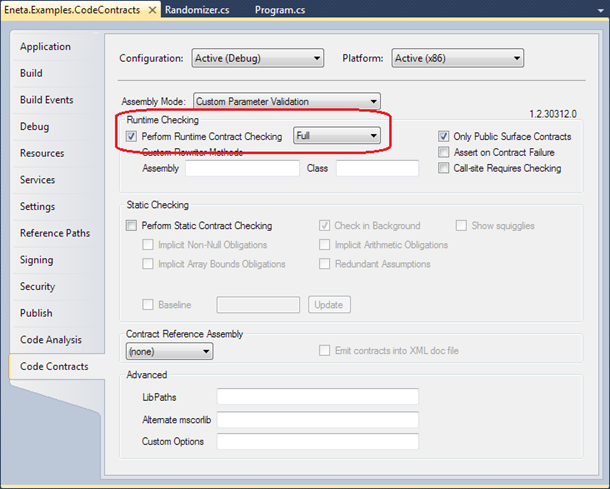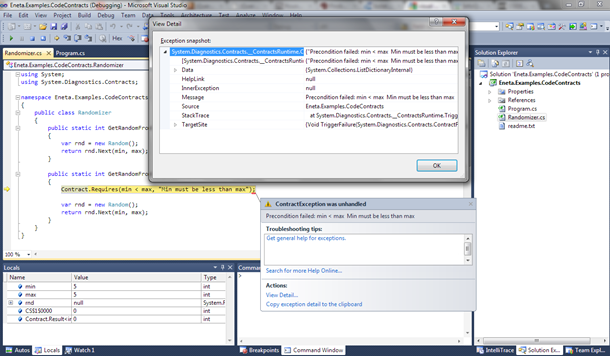Using runtime checking of code contracts in Visual Studio 2010
In my last posting about code contracts I introduced how to check input parameters of randomizer using static contracts checking. But you can also compile code contracts to your assemblies and use them also in runtime. In this posting I will demonstrate simple example about runtime checking of code contracts.
- Controlling randomizer using code contracts
- Using runtime checking of code contracts in Visual Studio 2010
- Code Contracts: Hiding ContractException
- Code Contracts: Unit testing contracted code
- Forcing code contracts through interface contracts
- Invariant code contracts – using class-wide contracts
- Code contracts and inheritance
- Enabling XML-documentation for code contracts
- Using Sandcastle to build code contracts documentation
- Code Contracts: How they look after compiling?
- Code Contracts: validating arrays and collections
To see how code contracts are checked at runtime we have to enable runtime checking from project properties. Make sure you have checked the box “Perform Runtime Contract Checking” and make sure you select “Full” from dropdown. These parts are in red box on the screenshot below.
Save project settings. Then compile code and run it. As soon as code execution hits the call to GetRandomFromRangeContracted() exception is thrown. If you are not currently playing with solution referred above take a look at the following screenshot.
The exact type of exception is ContractException and it is defined in System.Diagnostics.Contracts.__ContractsRuntime namespace. In our example the message of exception is following:
"Precondition failed: min < max Min must be less than max"
Besides the description we inserted for the case contract violation the message also contains violated contract type. In this case the type of contract is Precondition.
Conclusion
Using runtime checking of code contracts enables you to take code contracts with your code and have them checked every time when your methods are called. This way you can assure that all conditions are met to run method or exception is thrown and calling system has to handle the situation.








Comments are closed.